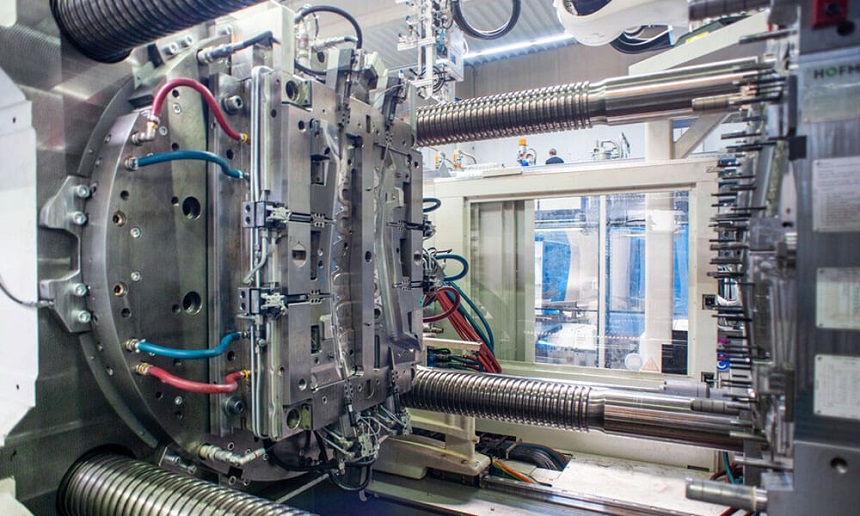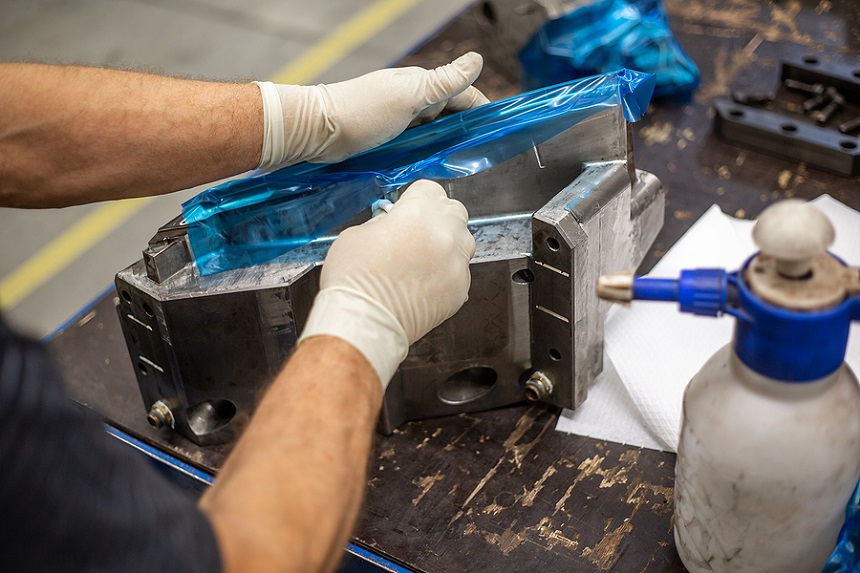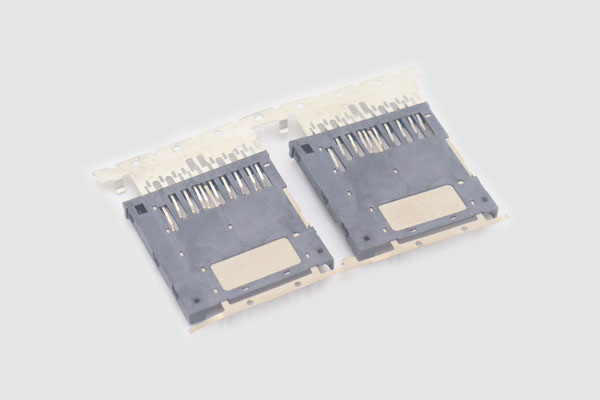7 Elements of Injection Mold Maintenance

During the injection molding process, molten material is injected into metal molds at high pressure. Once the finished part cools down, it’s automatically ejected. The process is highly automated and can make huge product volumes, especially plastic parts.
To achieve these large volumes, regular preventative maintenance of injection molding tools is important. This also keeps tools ready for production. If molds aren’t maintained properly, they may create parts that fail to meet expectations, negatively affecting the bottom line, wasting raw materials, and causing extra downtime.
As one of the leading plastic injection molding companies, we highlight seven elements of injection mold maintenance:
1. How your production environment influences molding
While it’s easier to think that the surrounding environment for injection molding wouldn’t make any difference, it’s clear that humidity, pressure, and extreme temperatures may affect the final parts. Molders that operate in difficult climates control temperatures and humidity within their facility to prevent problems with their molding operations.
In addition, the environment may also have an effect on the maintenance schedule. Since a lot of plastic injection molds are manufactured from uncoated steel, they can rust in environments with high moisture and heat. To ensure your molds aren’t affected, you should adjust the maintenance strategy and schedule in accordance with your surrounding environment.
2. Part quality may indicate injection mold condition
To find out whether or not the mold is in good condition, assess the quality of the part coming out of the injection mold. If your part has a short filling, sinks in the surface, and has flashing on the edges, you may need to get your mold serviced. If you detect odd shapes, scorch marks on the plastic parts, or rust on any surface, the mold may have a water leak around a seal that must be repaired.
If parts are good, the mold condition is typically healthy. Don’t allow molds to be neglected — if they’re left unrepaired for a considerable amount of time, they’ll increase your costs in the long run.

3. All injection molds need a comprehensive maintenance plan
Maintenance plans shouldn’t just focus on the timing for service. All molds in the facility should include details on solvents or cleaners that can be used without damaging the mold and any parts that need to be replaced (not refurbished). Following are some things you should consider while servicing your mold:
- If the mold isn’t going to be immediately used for production, it’s important to store it using the correct procedure. Should the surfaces be coated with an anti-corrosion spray to prevent the formation of rust? Should you lubricate components, flush cooling runners, separate halves, and ensure the mold is completely dry? These details will help you return the mold to service quickly.
- Define a comprehensive list of lubricants that may be used on the mold that won’t cause corrosion or harm the surface.
- Define a comprehensive list of solvents and cleaners that may be used on the mold that won’t cause corrosion or harm the surface.
- Decide the components to inspect and the frequency with which they should be inspected. This comprises sprues, gates, molding cavities, and resin runners that frequently come in contact with molten resin.
- Define an inspection criterion for every part of the mold — every fitting, every moving part, and every surface. You should determine if a part is good to go or needs to be replaced.
4. All molds need a maintenance schedule
All molds in your facility need a maintenance schedule — they must have a timeline of when they need to be prepared, cleaned, and inspected. By maintaining plastic injection molds regularly, you can keep them prepared for service.
Proper maintenance plans must comprise detailed instructions for cleaning, maintaining, and repairing molds. The plan must also outline the timing for every item, whether it’s based on the number of parts produced or on time. The resin used can also influence when every mold must be serviced.
5. Managing the cost of ownership through prevention
A preventative maintenance process helps prevent repairs. At PTMS, we look at the big picture and understand that molds in our shop undergoing repairs aren’t profitable. Thus, our maintenance plan is directly tied to the success of our operations, where prevention helps the operations run smoothly. To ensure the mold’s longevity, plastic injection molds brought into service must have a set preventative maintenance plan.

6. Invest in people – not just in machinery
Efficient, successful injection molding isn’t just about setting up a machine and letting it run, there are numerous adjustments and small tweaks you can make. They can’t all be looked up on a chart or be read in a book. Often, it’s just a matter of being familiar with a single machine. In addition, talented, experienced injection molding professionals will be able to determine, almost intuitively, the minor adjustments in variables like holding time, cushion, speed, and more. These can have a huge impact on cycle times and part quality. Some of the best individuals are probably right in your own company – so ensure you’re giving them opportunities to share their talents and knowledge and train others.
7. Keep wall thicknesses to the minimum required for your product or part to function effectively
This is a minimalist approach to part design, which means that lesser material will need to be injected within mold cavities, incrementally dropping injection time – which can add up to material time savings over many cycles. Just don’t forget to consider the required strength of your product walls, and to comply with the best design practices for lowest possible wall thicknesses.
PTMS is a leading plastic injection molding manufacturer that makes custom injection molding with advanced injection machines
As the finest plastic injection molding company in China, PTMS can mass-produce plastic injection molding parts for customers.
Get in touch with us for more information on our plastic injection molding services!
